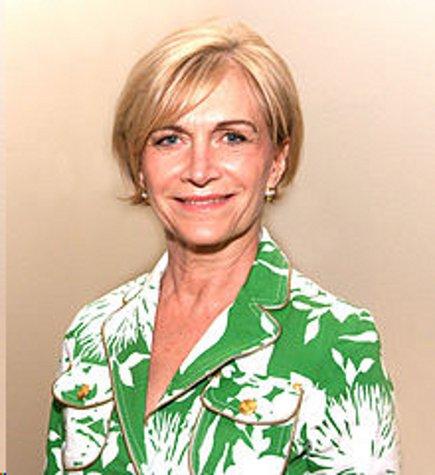Chilean Candidate’s Past Haunts the Presidential Elections

From PRI’s The World and our content partner, New America Media:
Evelyn Matthei is visiting a job-training center in Santiago. The presidential candidate shakes hands, poses for photos in a hard hat, and takes questions from reporters.
It doesn’t take long for someone to ask about the death of General Alberto Bachelet–the father of her current political rival, Michelle Bachelet.
General Bachelet died nearly 40 years ago, but it’s become an issue in this election. Some Chileans blame Matthei’s father for his death.
Juan Cristóbal Peña is a journalist who has written extensively about Chile in the 1970s. He says Michelle and Evelyn were childhood friends.
“Their fathers were friends,” he says. “So at one point they grew up together.”
Both of their fathers were generals in Chile’s Air Force.
“The two women come from similar backgrounds but they’ve had very different fates.”
General Bachelet supported Salvador Allende, South America’s first elected socialist president. On September 11, 1973, General Augusto Pinochet led a coup that overthrew Allende. The new government jailed General Bachelet and tortured him at a military academy. General Matthei was the new commander of that academy.
Last year, an elderly Matthei told CNN Chile that he knew of rights violations at the academy, but they were beyond his control.
“I can’t say I didn’t know,” he told CNN Chile. “Of course I knew. But I didn’t have any way to change things.”
Bachelet died in prison months after the coup. Now a human rights lawyer has filed a suit to get General Matthei charged with negligent homicide.
Still, Robert Funk doesn’t expect this piece of history to play much of a role in the November election. He’s director of the Center for the study of public opinion at the University of Chile.
“It’s not that relevant aside from a curiosity of history that both women are daughters of Air Force generals,” he says.
He says many young people will vote for the first time this year, and they have no memory of those times.
“These are people who were born in democracy, people for whom the past is not that relevant. They may not have great feelings necessarily toward the Pinochet regime, but their political choices, if they choose to vote, their choices are going to be determined by the positions of candidates much more than a kind of historical record.”

Over the years, the Bachelet family has stayed on good terms with the Matthei family. But the Bachelet campaign doesn’t mind reminding the voters who was on which side in the 1970s.
Spokesman Álvaro Elizalde stresses that the campaign is about the issues–education reform and a new constitution.
But he still brings up Michelle Bachelet’s record during the dictatorship. Like her father, she was also tortured.
“And the last difference is Michelle Bachelet has a clean biography,” says Elizade. “Evelyn Matthei, she was part of the base of support of the dictatorship.”
But Evelyn Matthei prefers to keep her focus on the campaign ahead.
“We know there are many problems that need to be addressed,” she says. “We have a lot of inequality in Chile. We have an education that is very different for the people that can pay and the people who cannot pay. This government has advanced a lot, enormously, but there’s still a lot to do.”
When reporters bring up the past, she shrugs it off.
“My father is my father and I am myself,” she says. “I’ve been in politics for 22 years. I am Evelyn. My father is himself.”
But it may be hard to keep people from thinking about what happened in 1973. Chile marks the 40th anniversary of the coup this September—two months before the election.
Photos: Wikipedia Commons.




























































































































































































































































































































